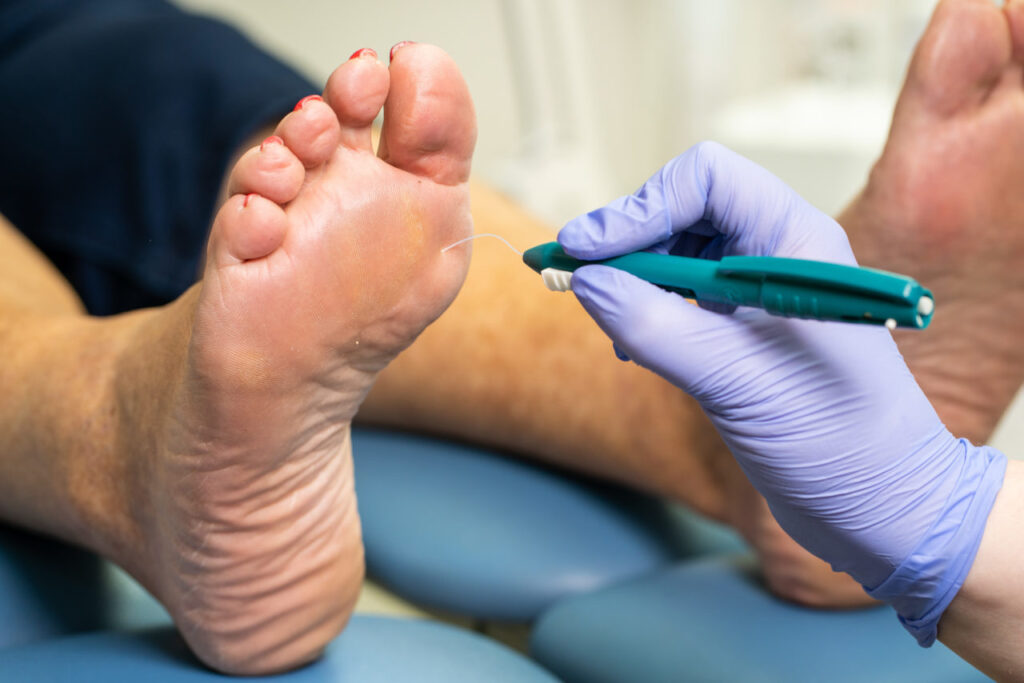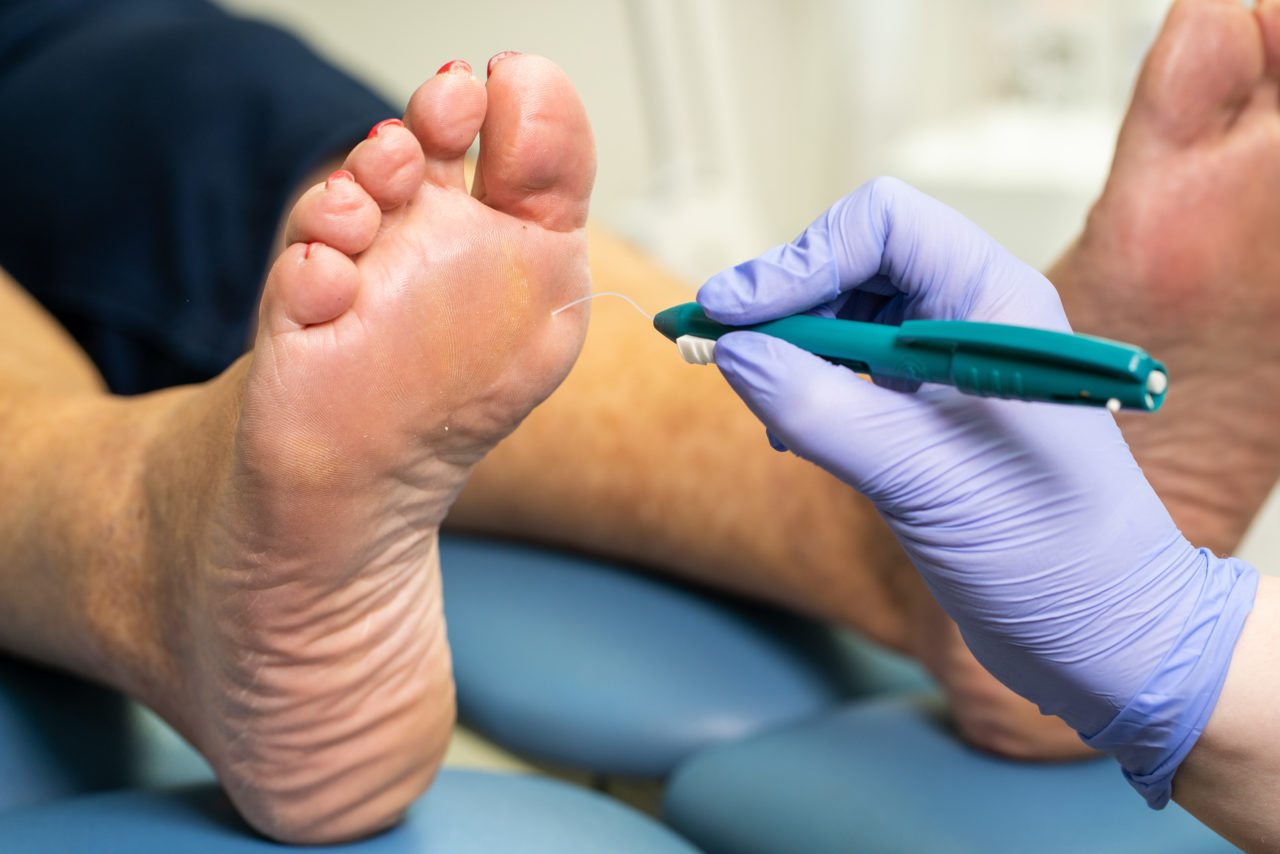Diabetes and Foot Care: Tips for Preventing Complications

Foot care is a critical aspect of diabetes management as individuals with diabetes are more prone to foot complications. High blood sugar levels can damage nerves and blood vessels, reducing sensation and circulation in the feet. Proper foot care can prevent serious complications such as diabetic foot ulcers and infections. In this article, we will explore the importance of foot care for individuals with diabetes and provide valuable tips to prevent foot complications and maintain optimal foot health.
- Daily Foot Inspection: Perform a daily foot inspection to check for any signs of redness, swelling, blisters, cuts, or calluses. If you have difficulty seeing your feet, use a mirror or ask a family member for assistance. Early detection of any abnormalities allows for timely intervention and prevents complications.
- Wash and Dry Feet: Wash your feet with warm water and mild soap daily. Avoid soaking your feet, as prolonged exposure to water can lead to dryness. After washing, pat your feet dry gently, especially between the toes, to prevent moisture buildup, which can promote fungal infections.
- Moisturize Regularly: Apply a moisturizing lotion or cream to keep your feet hydrated. However, avoid applying moisturizer between the toes, as excess moisture in this area can lead to fungal growth.
- Trim Toenails Carefully: Trim your toenails straight across and avoid cutting too close to the skin or rounding the corners. Proper toenail care reduces the risk of ingrown toenails and potential infections.
- Choose Proper Footwear: Wear well-fitted, comfortable shoes with enough room for your toes to move freely. Look for shoes made of breathable materials and with cushioned soles to reduce pressure on the feet. Avoid wearing sandals or open-toed shoes that leave your feet vulnerable to injuries.
- Wear Clean, Dry Socks: Wear clean, moisture-wicking socks to keep your feet dry and prevent friction. Change your socks daily, and consider using seamless socks to avoid rubbing and irritation.
- Avoid Walking Barefoot: Never walk barefoot, even indoors. Stepping on sharp objects or hot surfaces can lead to injuries that may go unnoticed due to reduced sensation in the feet.
- Manage Blood Sugar Levels: Keeping blood sugar levels within the target range is crucial for preventing diabetic foot complications. Uncontrolled diabetes can worsen nerve and blood vessel damage, increasing the risk of foot problems.
- Elevate Feet and Stay Active: Elevate your feet whenever possible to improve circulation. Regular physical activity, such as walking, helps maintain blood flow to the feet and supports overall foot health.
- Regular Podiatrist Visits: Schedule regular visits to a podiatrist who specializes in diabetic foot care. A podiatrist can assess your foot health, provide professional foot care, and offer personalized advice to prevent complications.
Conclusion: Diabetes and foot care go hand in hand to prevent serious complications and maintain optimal foot health. By incorporating simple yet effective foot care practices into their daily routine, individuals with diabetes can reduce the risk of foot injuries, infections, and diabetic foot ulcers. Regular foot inspections, proper hygiene, well-fitted footwear, and managing blood sugar levels are crucial steps in preventing diabetic foot complications. Seeking regular podiatrist care and promptly addressing any foot issues are vital for maintaining mobility and preventing potential complications that could affect overall well-being. With consistent foot care and vigilance, individuals with diabetes can enjoy a healthier, active lifestyle and reduce the risk of diabetic foot complications.





